There’s something magical about stumbling across an Audie Murphy Western on a Saturday afternoon. Maybe it’s the way his quiet intensity filled the screen, or how his characters always seemed to carry the weight of unspoken experiences behind their eyes. For those of us who grew up watching these films, Murphy represented something authentic in an era when Hollywood was still figuring out what real heroism looked like on screen.
1. The Kid From Texas (1950)
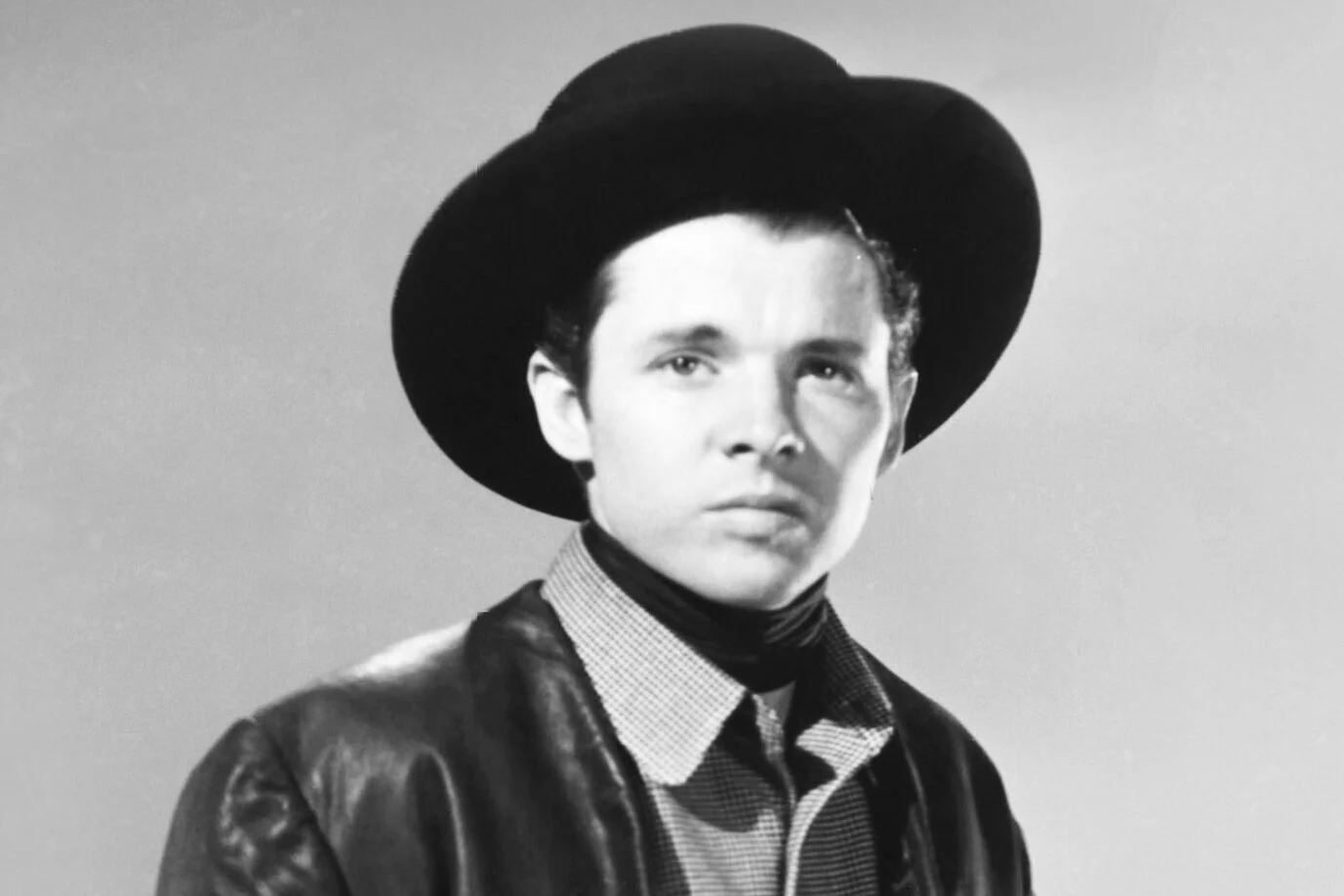
Murphy’s first starring Western role introduced audiences to a different kind of cowboy hero. Unlike the larger-than-life figures dominating screens at the time, Murphy brought a boyish vulnerability that made his Billy the Kid feel genuinely human. His portrayal suggested that even legendary outlaws started as confused young men trying to find their place in an unforgiving world. As shown by ratings on IMDb, there are still those who remember this career essential.
The film’s success wasn’t just about Murphy’s natural screen presence, though that certainly helped. Director George Sherman understood that Murphy’s real-life military background gave him an authenticity that couldn’t be taught or faked. When Murphy’s character faced down danger, you believed he’d actually been there before, and that quiet confidence became the foundation for everything that followed.
2. Sierra (1950)
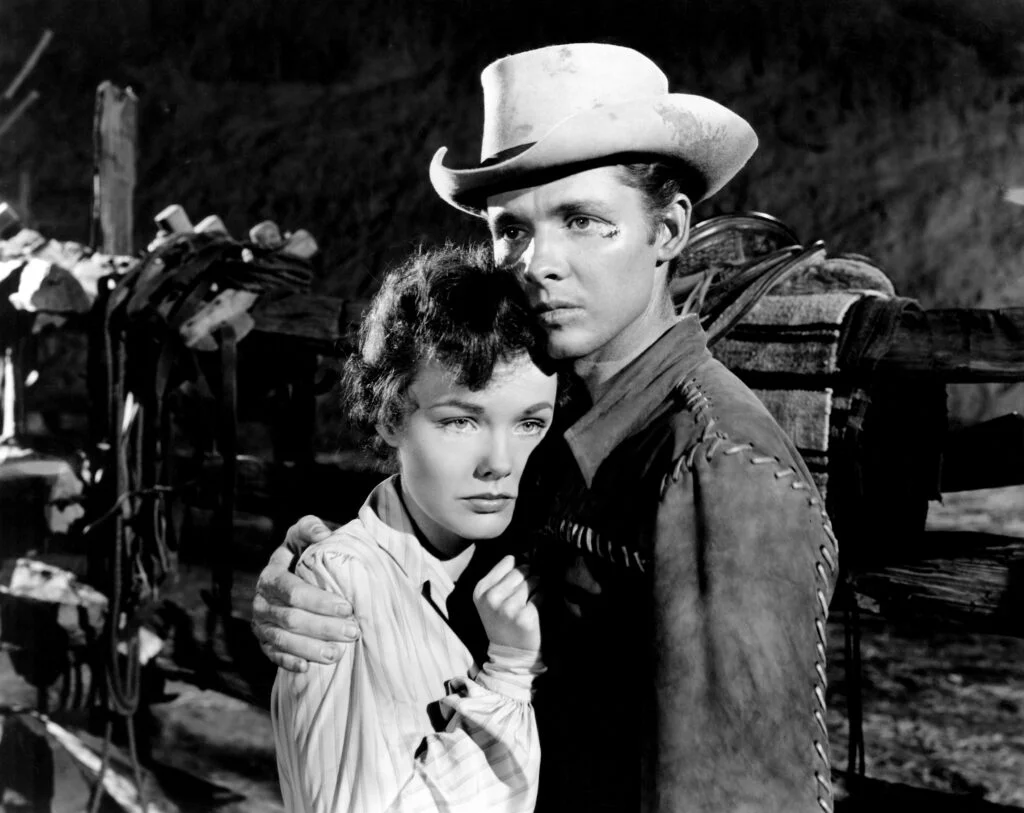
In this tale of a father-son relationship set against the backdrop of the California mountains, Murphy showed his range beyond the typical gunslinger role. His character’s struggle with family loyalty and personal honor resonated with audiences who understood the complexities of post-war family dynamics. The film’s emotional depth proved that Westerns could be more than just shoot-’em-ups. As seen on Rotten Tomatoes, this film really flew under the radar.
Murphy’s chemistry with veteran actor Dean Jagger created a believable family dynamic that felt earned rather than manufactured. Their scenes together crackled with the kind of tension that comes from real affection mixed with generational differences. It was the kind of relationship that reminded viewers of their own complicated family histories, making the Western setting feel surprisingly intimate.
3. Kansas Raiders (1951)
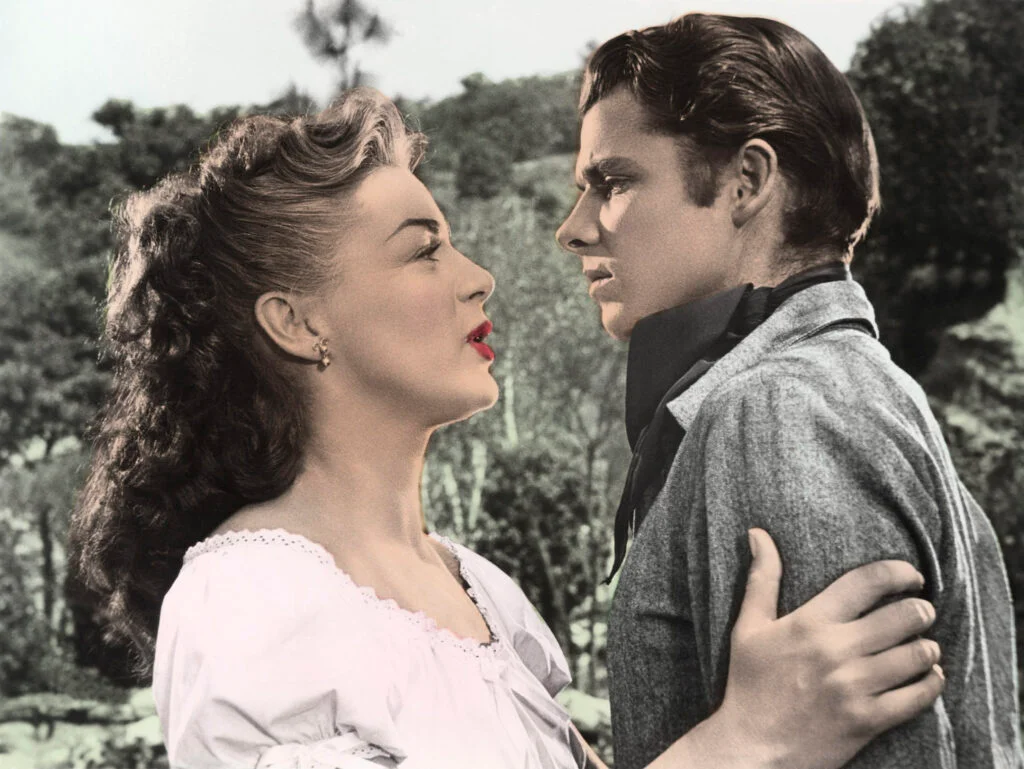
Playing alongside Audie Murphy, this film featured him as Jesse James in one of his most morally complex roles. Murphy’s portrayal avoided the romanticized outlaw archetype, instead presenting a man caught between loyalty and conscience. His internal struggle felt genuine because Murphy himself understood what it meant to be thrust into violence at a young age. Of Murphy’s films rated on IMDb, this one definitely has more staying power.
The supporting cast, including Brian Donlevy and Marguerite Chapman, provided excellent foils for Murphy’s more introspective approach to the material. The film’s exploration of Civil War aftermath themes struck a chord with audiences still processing World War II’s impact on American society. Murphy’s ability to convey conflict without melodrama made every scene feel urgent and real.
4. The Cimarron Kid (1952)
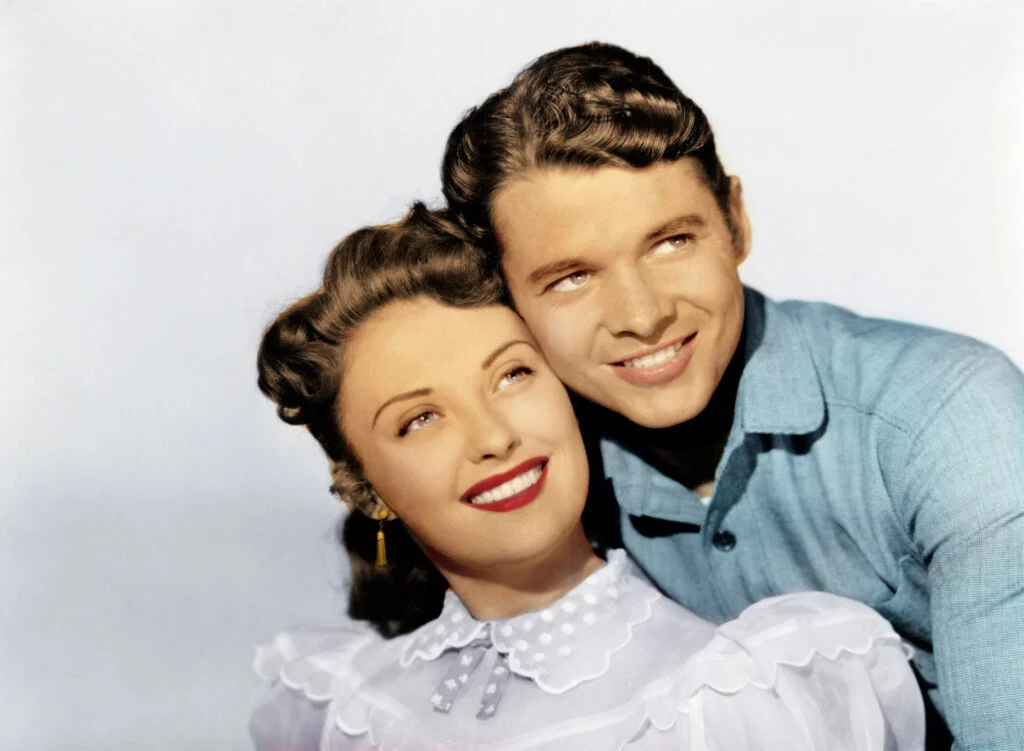
Murphy’s portrayal of Bill Doolin showcased his ability to play characters walking the line between heroism and outlawry. His performance captured the desperation of a man trying to go straight while being pulled back into his criminal past. The film’s psychological complexity elevated it above typical B-Western fare of the era.
Director Budd Boetticher recognized Murphy’s gift for conveying internal conflict through subtle facial expressions and body language. Their collaboration resulted in some of Murphy’s most nuanced work, particularly in scenes where his character grappled with the consequences of past actions. The film’s exploration of redemption themes would become a recurring element in Murphy’s best Western performances.
5. Gunfight at Comanche Creek (1963)
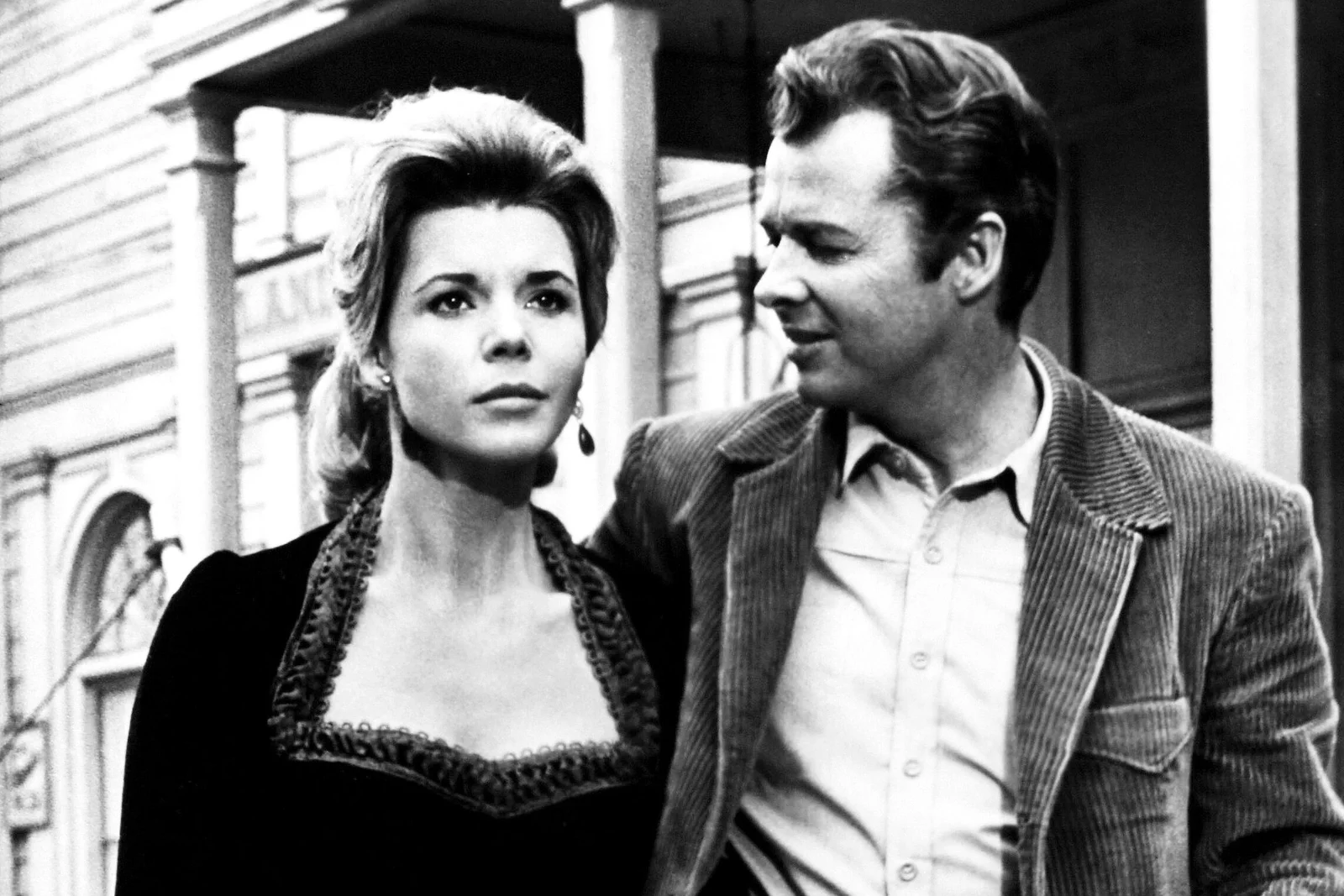
By the early 1960s, Murphy had refined his Western persona into something uniquely his own. His character in this film, a detective working undercover, allowed him to blend his natural investigative instincts with traditional Western action. The result was a more mature performance that showed how Murphy had grown as an actor over the decade.
The film’s plot, involving identity theft and criminal impersonation, felt surprisingly modern for its time. Murphy’s methodical approach to unraveling the mystery demonstrated his evolution from simple cowboy roles to more complex character studies. His interactions with the ensemble cast, including Ben Cooper and Colleen Miller, showed a seasoned performer comfortable in his own skin.
6. Apache Rifles (1964)
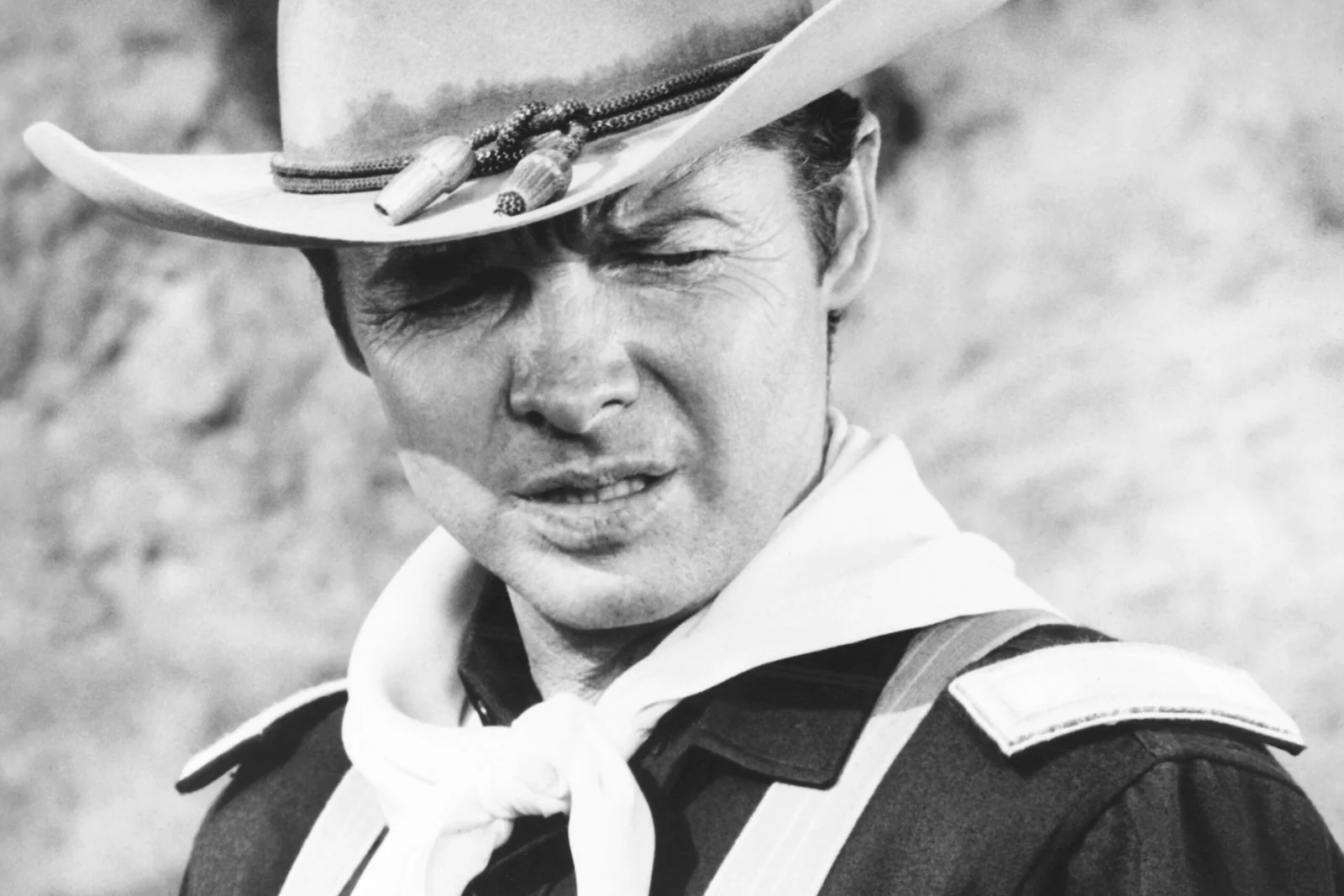
Murphy’s role as a cavalry officer trying to prevent an Apache uprising showcased his ability to handle complex racial and political themes. His character’s respect for Native American culture, unusual for Westerns of the era, reflected Murphy’s own real-world understanding of cultural sensitivity. The film tackled difficult subjects with more nuance than many of its contemporaries.
Working with director William Witney, Murphy delivered one of his most physically demanding performances. The action sequences felt authentic because Murphy performed many of his own stunts, drawing on his military training. His portrayal of a soldier caught between duty and conscience resonated with audiences who remembered similar moral dilemmas from their own wartime experiences.
7. Arizona Raiders (1965)
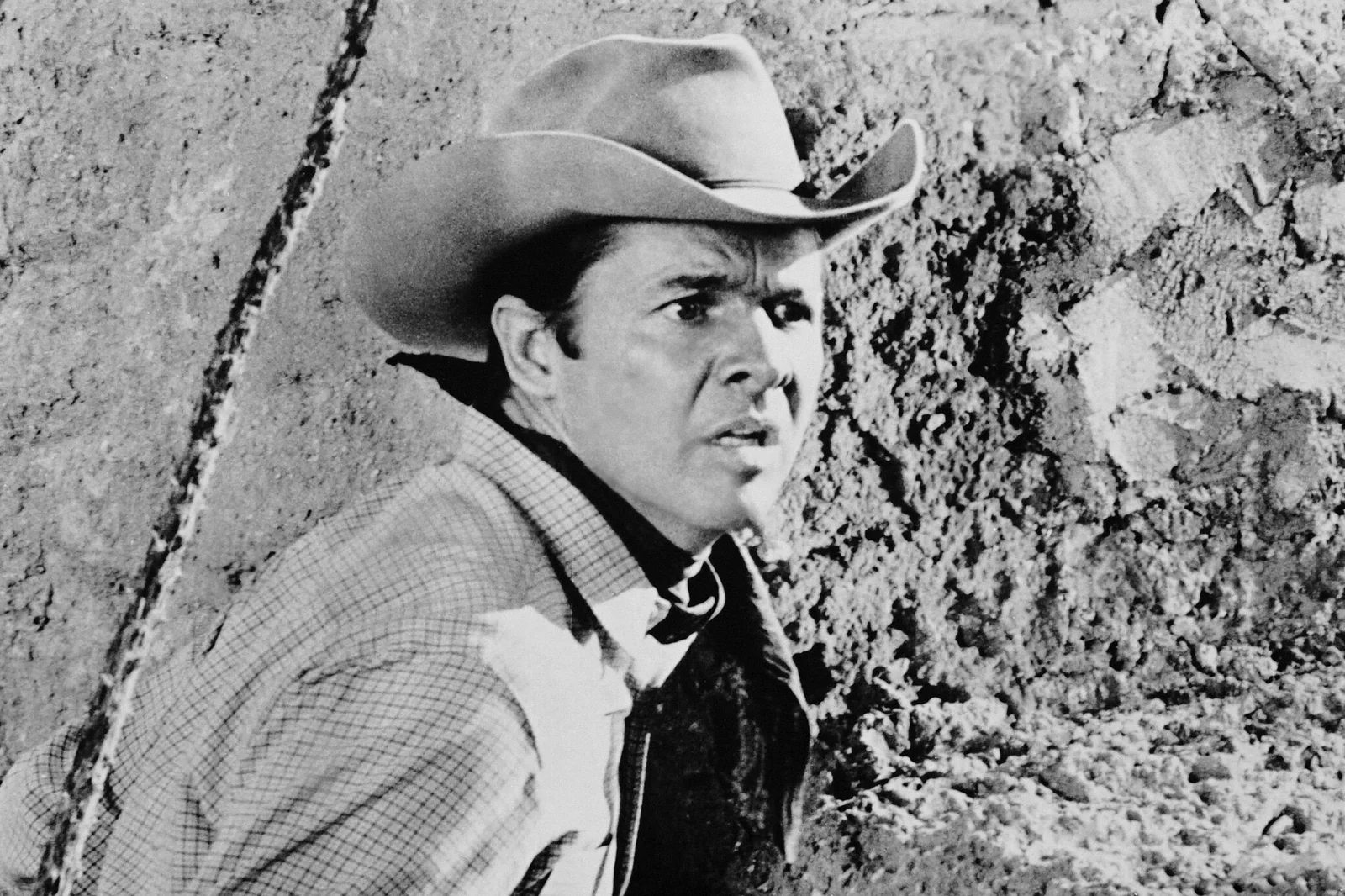
Murphy’s final collaboration with director William Witney resulted in one of his most entertaining Westerns. His character, a former Confederate soldier turned lawman, embodied the post-Civil War theme of redemption and second chances. The film’s blend of action and character development represented the best of 1960s Western filmmaking.
The supporting cast, including Michael Dante and Ben Cooper, created a believable team dynamic that elevated the material beyond standard genre fare. Murphy’s leadership both on and off screen was evident in the chemistry between the actors. His ability to anchor ensemble pieces while still delivering compelling individual moments showed his growth as a leading man.
8. Destry (1954)
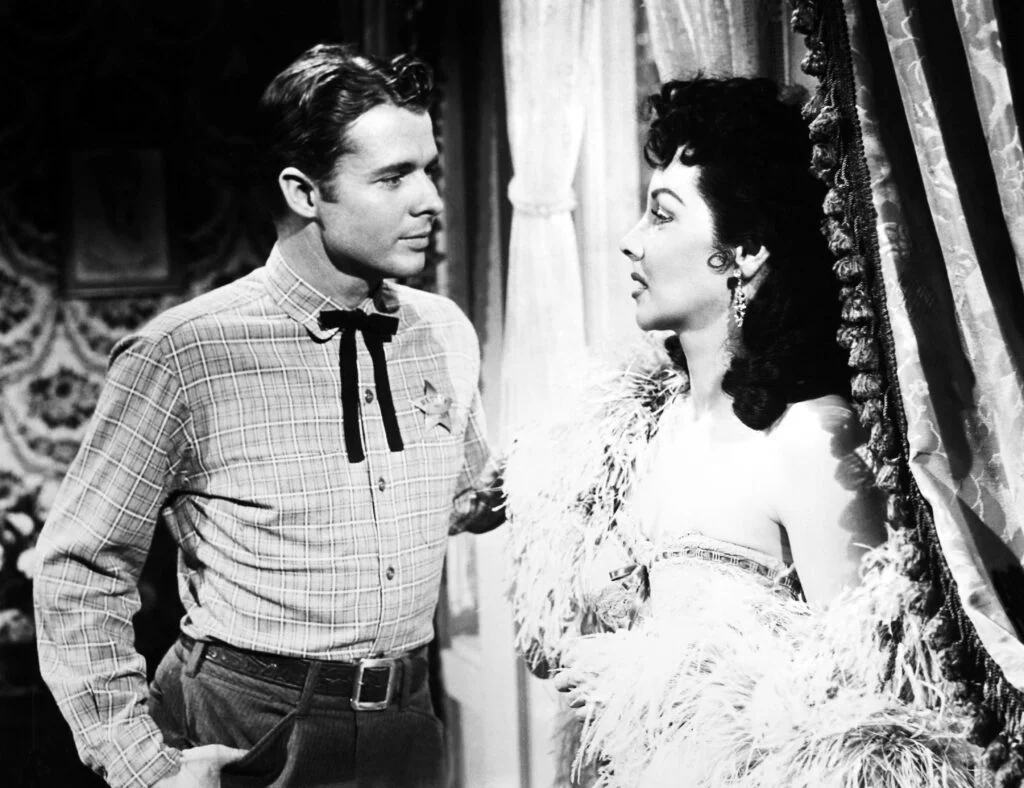
Murphy’s take on the classic Destry character brought his own spin to this remake of the James Stewart vehicle. His portrayal of the mild-mannered lawman who refuses to carry a gun showcased Murphy’s ability to play against type while maintaining his essential screen appeal. The film’s blend of comedy and drama allowed Murphy to display a lighter touch that many audiences hadn’t seen before.
Working with director George Sherman again, Murphy created a character study that explored the nature of courage and conviction. His scenes with Mari Blanchard crackled with romantic tension that felt genuine rather than manufactured by the studio system. The film proved that Murphy could handle both the comedic timing and dramatic weight necessary for this more complex character interpretation.
9. The Texican (1966)
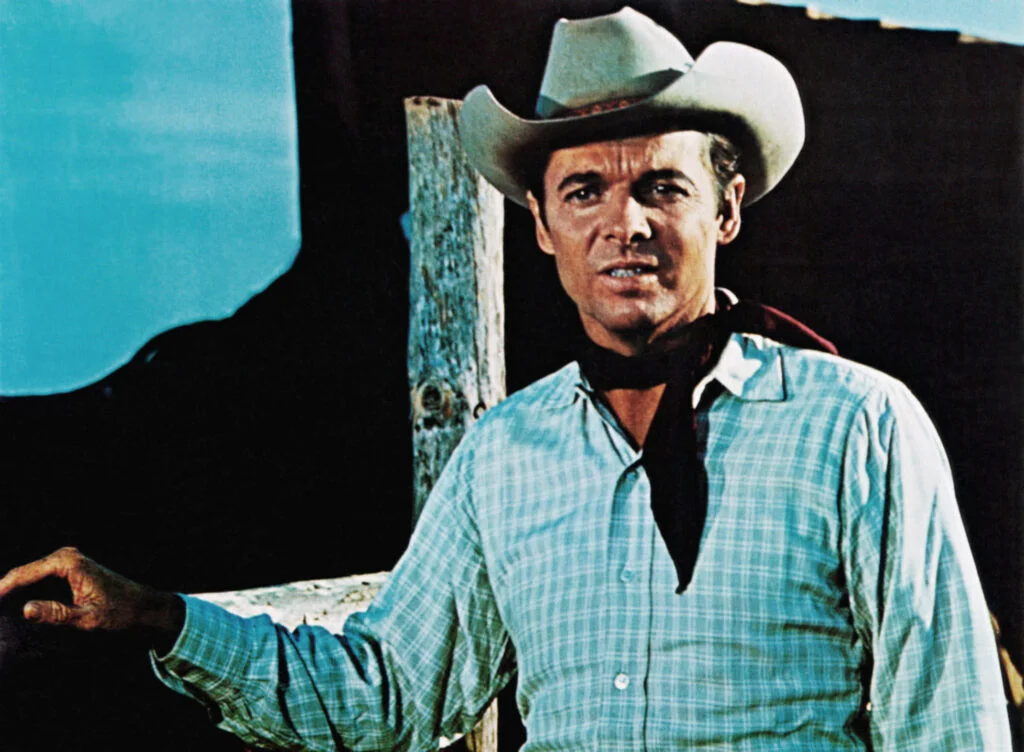
Murphy’s venture into international Western production brought new energy to his familiar screen persona. Filmed in Spain, the movie offered stunning landscapes that provided a fresh backdrop for Murphy’s tried-and-true character type. His performance as a man seeking justice for his brother’s death felt both familiar and renewed by the exotic setting.
The film’s blend of American Western traditions with European sensibilities created something unique in Murphy’s filmography. His work opposite Spanish actress Broderick Crawford showed his adaptability to different acting styles and cultural approaches. The international flavor didn’t diminish Murphy’s essential American cowboy appeal but rather enhanced it through contrast.
10. 40 Guns to Apache Pass (1967)
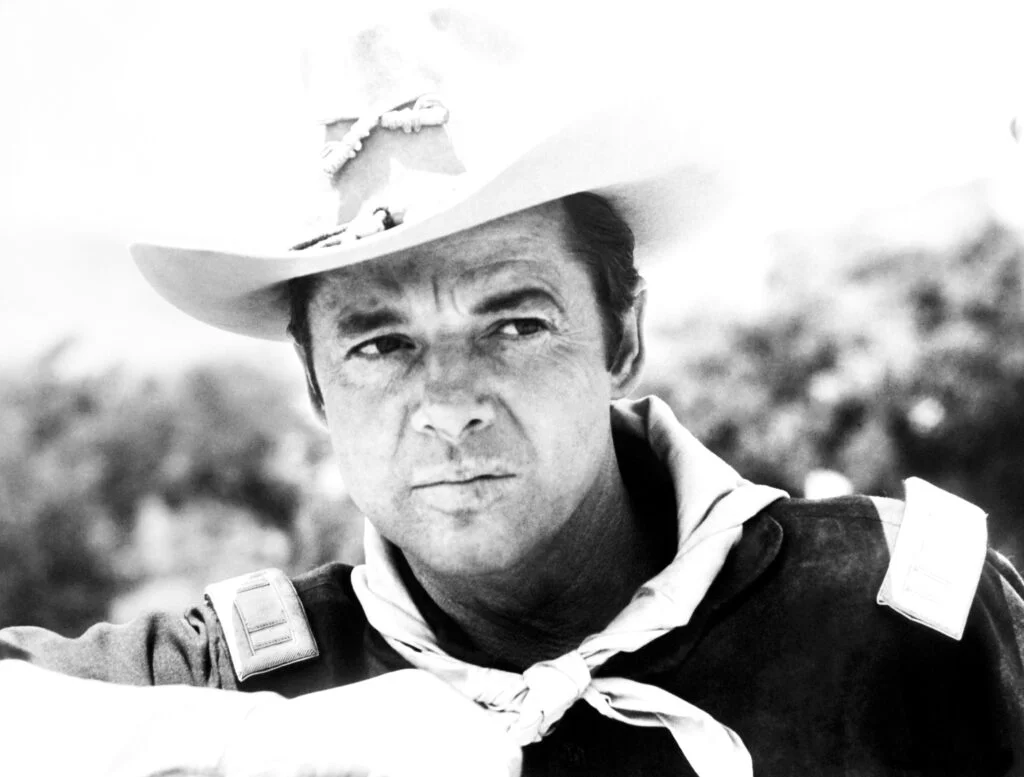
Murphy’s role as a cavalry captain protecting a crucial supply route showcased his military background to great effect. His understanding of tactical thinking and leadership dynamics brought authenticity to scenes involving military strategy and command decisions. The film benefited from Murphy’s ability to make exposition about military matters feel natural and engaging.
Director William Witney returned to work with Murphy, creating action sequences that felt both spectacular and believable. Murphy’s interactions with the ensemble cast, including Kenneth Tobey and Laraine Stephens, demonstrated his skill at balancing multiple character relationships. The film’s combination of personal drama and military action played perfectly to Murphy’s established strengths.
11. The Unforgiven (1960)
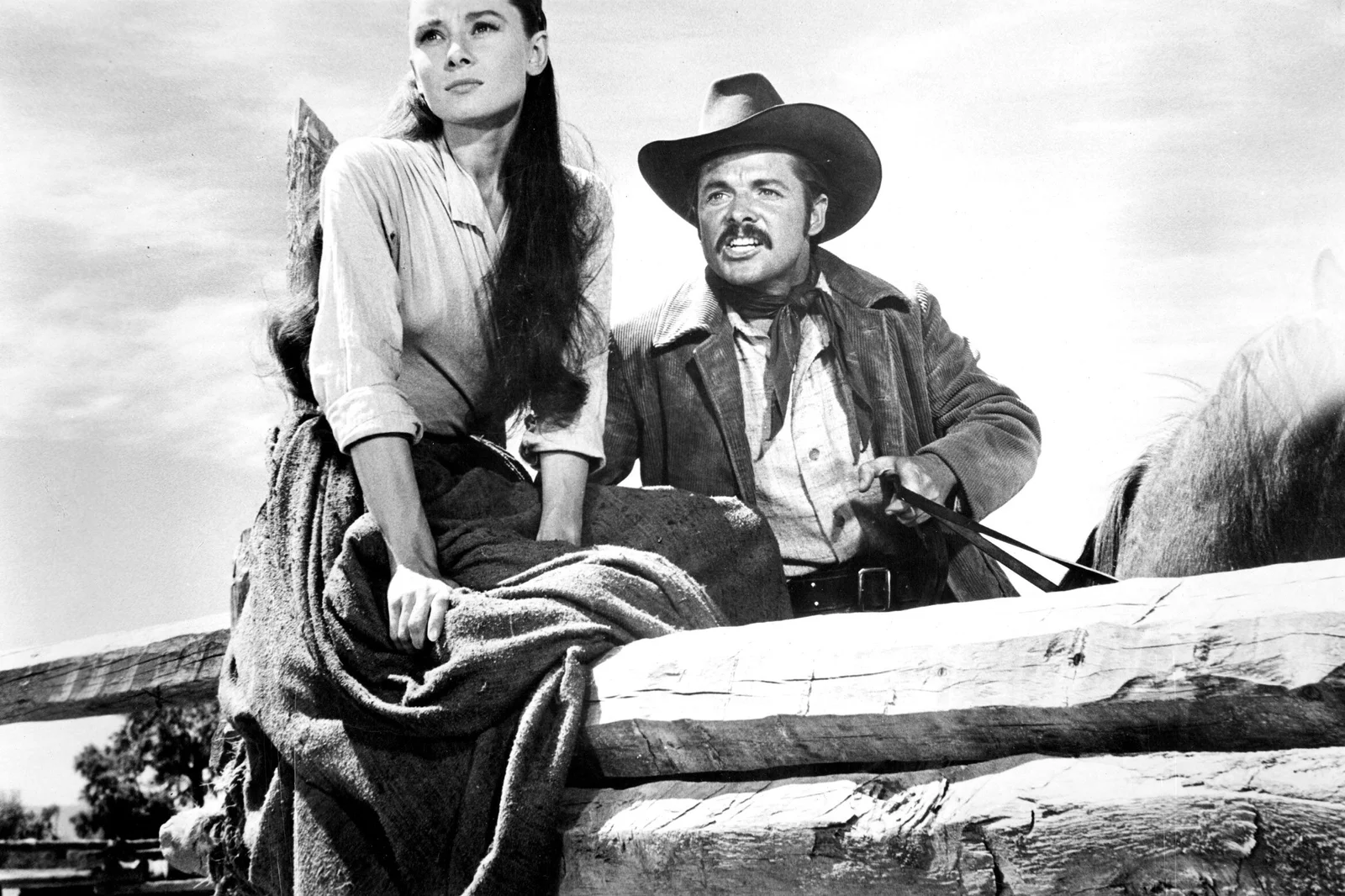
Working alongside John Huston and sharing the screen with Audrey Hepburn represented a career highlight for Murphy. His supporting role in this major studio production showed his ability to hold his own among Hollywood’s biggest names. The film’s serious treatment of racial themes and family loyalty provided Murphy with some of his most challenging dramatic material.
Murphy’s chemistry with the entire cast, including Burt Lancaster and Lillian Gish, elevated his performance beyond his usual B-Western work. His portrayal of a young man discovering uncomfortable truths about his family’s past resonated with post-war audiences grappling with their own historical reckonings. The film proved that Murphy could succeed in prestige productions while maintaining his essential screen appeal.
12. No Name on the Bullet (1959)
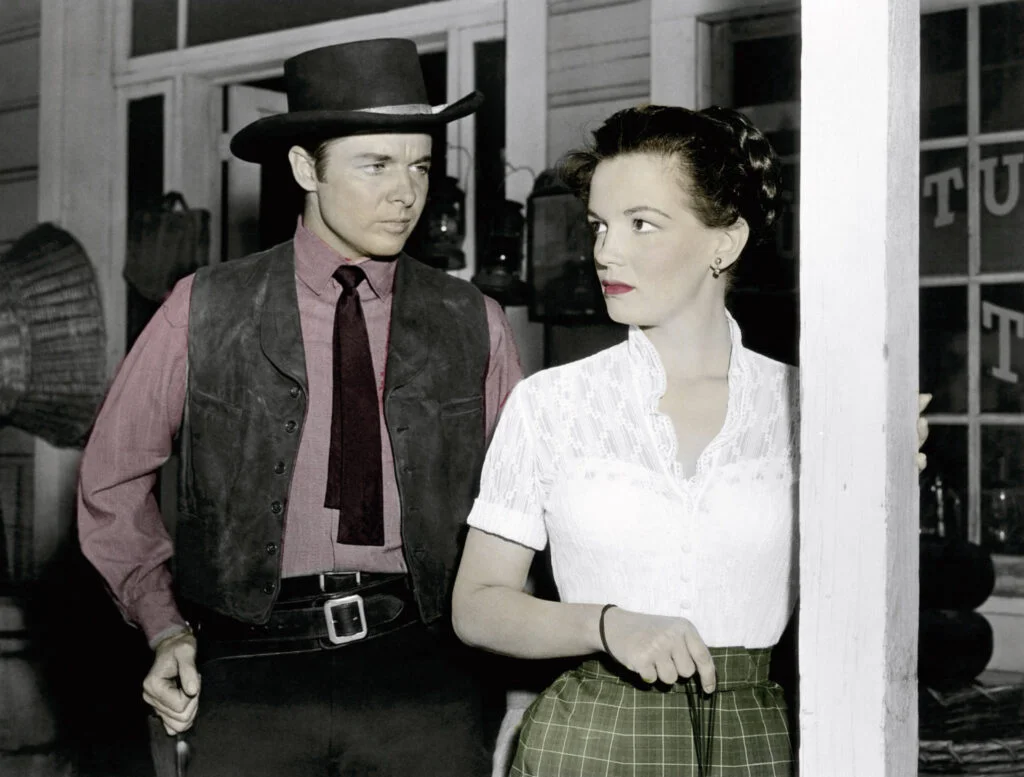
Perhaps Murphy’s finest Western performance came in this psychological thriller about a hired killer’s arrival in a small town. His portrayal of John Gant, a soft-spoken assassin whose mere presence terrorizes an entire community, showcased acting skills that surprised even his longtime fans. The film’s focus on psychological tension rather than traditional gunfights played to Murphy’s strengths as a subtle performer.
Director Jack Arnold crafted a unique Western that felt more like a film noir, and Murphy rose to the challenge with his most complex characterization. His ability to be simultaneously charming and menacing created a memorable antagonist who stayed with audiences long after the credits rolled. The film’s exploration of fear, guilt, and community responsibility elevated it to the level of Western classic.
These twelve films represent more than just entertainment from a bygone era—they’re time capsules of American values, fears, and aspirations during some of our nation’s most transformative decades. Audie Murphy brought something irreplaceable to each role: the quiet dignity of someone who had seen real combat, the humility of a man who never forgot his humble beginnings, and the natural charisma of a genuine American hero. In an age when movie stars seem manufactured rather than discovered, Murphy’s authentic presence on screen remains as compelling today as it was decades ago, reminding us what real heroism looks like when it’s not trying to impress anyone.


